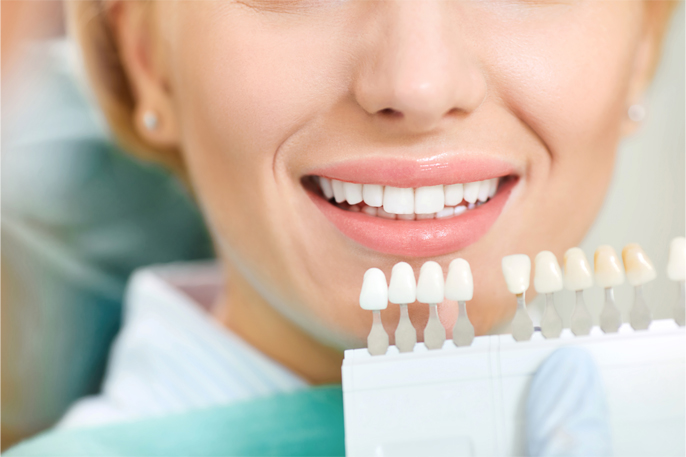When we consider utilizing cosmetic dentistry to enhance our smiles, there are different options available based on what we seek to accomplish. Dental bonding and veneers may accomplish the same goal, but the relative investment and overall process of each are much different. Here is what you should know about dental bonding and veneers before you embark on one or the other procedure.
Dental Bonding
Bonding refers to the use of a smooth, tooth-colored solution that is applied to a tooth that has been chipped, stained, or has a gap. Your dentist will place the solution in a way that mimics or enhances the appearance of the tooth, utilizing a UV light to harden it in place as they continue. After the desired result has been achieved, the tooth is then polished to seamlessly integrate the tooth with the new bond. It is typically employed for patients who only need one or two teeth corrected.
Veneers
Veneers are made from a solid piece of porcelain that has been created to fit over the front and underside of your existing teeth. They cover the entire surface of the tooth or teeth and can be created to lengthen or widen teeth, or fill gaps and chips. Porcelain veneers are commonly suggested for patients who would like to correct several problems or would like to make over an entire set of teeth.
To schedule an appointment or learn more about the beautiful smiles Dr. Sukari McMiller has created visit us online today at www.dreamworksdentalcare.com.
Dr. Sukari McMiller proudly serves patients from Fayetteville and all surrounding areas.





